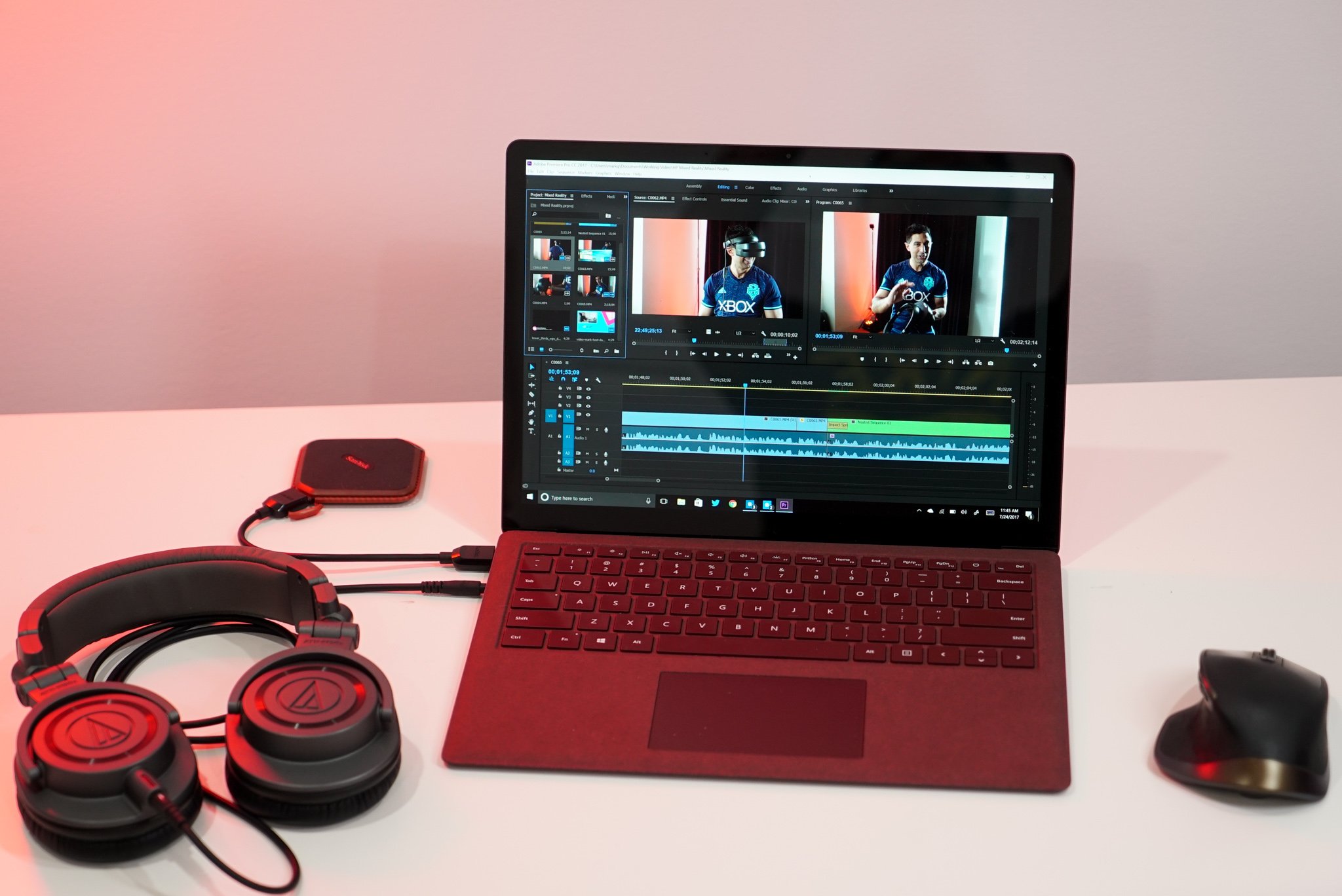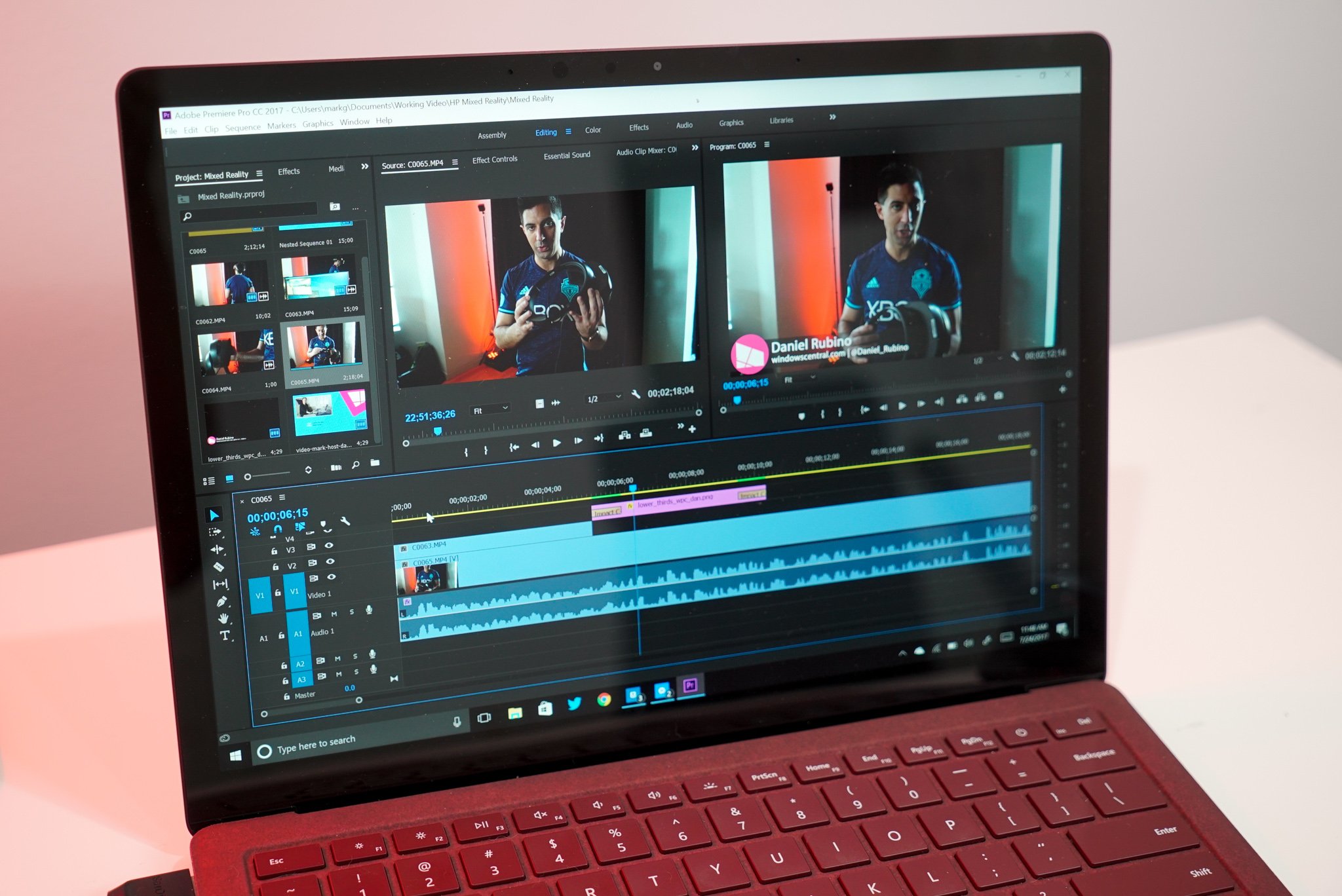
The Surface Laptop I'm using in this article is the model with an Intel Core i5 processor, Intel HD 620 graphics, 8GB RAM, and 256GB storage priced at $1,299. For an extra $300, you bump up to Intel Core i7 processor and Intel Iris Plus graphics. From looking at the specifications, you could assume this model, in particular, won't be much good for video editing, and while you're correct it's not a terrible experience.
Importing
Let's start with the importing process. Unfortunately, the Surface Laptop does not have an SD card reader so video editors will need a dongle. There's only one USB Type-A slot, so it'll be better to carry around a USB dongle that includes multiple ports.
Editing & exporting
The video editing app I use on Windows 10 is Adobe Premiere Pro. It's the software responsible for all the videos I've uploaded to the Windows Central Youtube channel. Since it is a separate download outside the Windows Store, I had to upgrade the Surface Laptop from Windows 10 S to Windows 10 Pro. It's a lot easier than you think and it takes less than 3 minutes.
Once the video files were imported into the Surface Laptop, I was initially surprised to see a smooth playback of the videos on the timeline. My hopes increased, but I was quickly reminded of the hardware limitations once I started trimming clips and added simple transitions. Playback started to lag, and it became more noticeable when other apps are open. I opened Slack, Twitter, GroupMe, and Microsoft Word, and it became evident that my workflow would be a lot slower compared to a beefier laptop like the Razer Blade or HP ZBook Studio. I'm able to complete my video projects with the Surface Laptop, but at a much slower pace.

Exporting finished videos is another uphill battle for the Surface Laptop. A sample 2-minute 4K video shot with the Sony a7S II takes about 25 minutes to export. For comparison, the Razer Blade with GTX 1060 graphics card and HP ZBook Studio with NVIDIA Quadro M1200 take about 4 minutes to export the same project.
Get the Windows Central Newsletter
All the latest news, reviews, and guides for Windows and Xbox diehards.
Playing the finished video isn't a problem at all on the Surface Laptop. It can play 4K videos smoothly.
Using an external monitor
When editing videos from home, I usually connect my machine to an external 4K monitor. The Surface Laptop has a mini DisplayPort instead of the newer USB Type-C port, but it works fine as long as you have the right cable. To squeeze out the most performance, it's best to project to the external monitor only, instead of extending and using the Surface Laptop's display along with the external monitor.
Conclusion
Sure, the Surface Laptop with an Intel Core i5 processor can handle video editing, but it's not a pleasant experience compared to laptops with stronger specifications. If you're very interested in the Surface Laptop and need to occasionally edit videos, spend the extra money for the model with the Intel Core i7 processor and Intel Iris Plus 640 graphics. If editing videos is your job, then you should probably look elsewhere.

